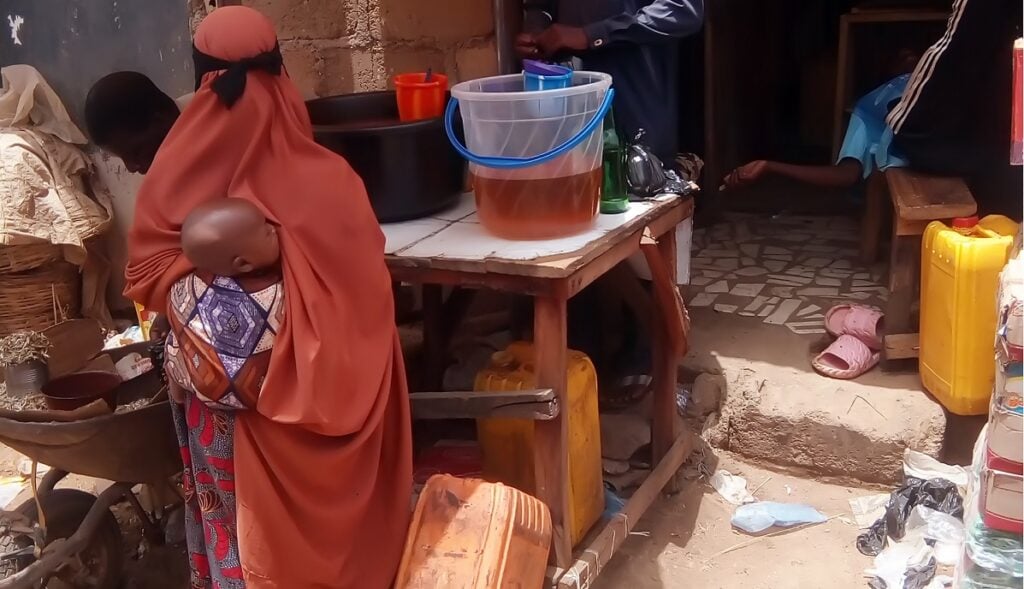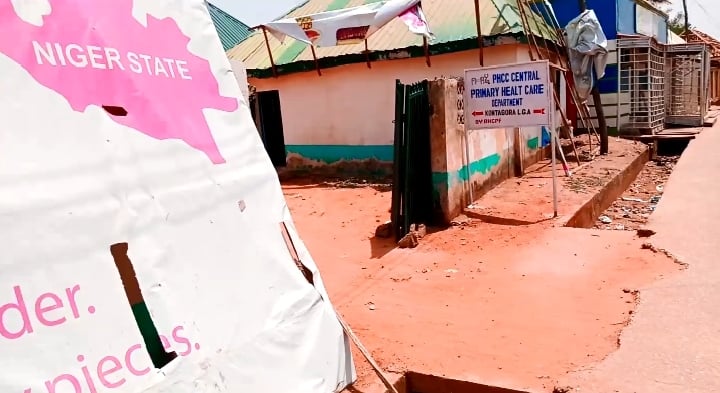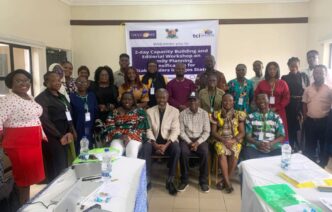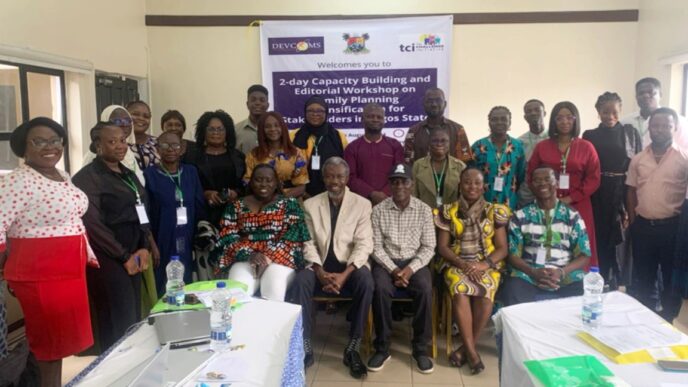In Niger state, north-central region of Nigeria, pregnant women suffer birth complications and fetal loss due to the absence of strict monitoring of self–run maternal care homes often run by untrained nurses and midwives. In this report, ANIBE IDAJILI & JENNIFER UGWA probe why these women seek alternative medical and maternal care from unqualified birth attendants at the risk of their lives.
When most of Arungungun in Kotongora, Niger state, quietened down and families sat at dinner, a cacophony of voices and hurried footsteps stirred the quiet streets of the sleepy town.
A crowd gathered in front of a three-bedroom apartment where a traditional birth attendant (TBA), popularly known as Madam Maryam, ran an unlicensed birth home in the community.
The cluster of people outside the compound were neighbours and relatives of Musa Rabi, a young 24-year-old mother, who had been in labour for the past 48 hours.
Advertisement
While some called on supernatural assistance to ease the delivery process, others made conversations about possible names for the unborn child. Only a few expressed passing concerns about the state of the mother.
“Now! Push, push now!” Madam Mariam urged Rabi.
Rabi’s contractions hit her in quick succession, and each wave sent a flood of pain that shook her to the core of her being.
Advertisement
However, after more than 48 hours, the foetus that an earlier ultrasound had revealed to be in a breech presentation had gone into distress and insistently pushed against Rabi’s spine rather than pounding downwards the cervix.
“I pushed my hardest through the contractions. I feared I might die,” Rabi narrated. Still, the midwife urged her on.
Maryam finally released a bleeding and exhausted Rabi to her family to rush her to the emergency unit at the nearby Kotongora General Hospital after two days of excruciating pain.
However, the help was too late. Rabi lost the baby.
Advertisement

The use of unlicensed auxiliary nurses and midwives is endemic in rural and suburban areas across states in Nigeria.
The prevailing argument for recourse to traditional birth assistants has been their affordability and the attendants’ supposed expertise from years of experience.
However, in a country where only about 20 per cent of an estimated 30,000 primary health care centres are functional, the cheap care offered by these uncertified birth attendants may be the major reason as findings revealed that the expertise is amiss.
Like Rabi, Kabiru Chinenye, 33, during her second trimester, after much advice from older female neighbours, sought the services of a traditional birth attendant only known as “mummy” in her neighbourhood.
Advertisement
Within a couple of weeks after her enrolment at the TBA’s home, Chinenye, who was accessing ante-natal care in a private clinic where she had her first child, stopped going for her appointments with the doctors and soon began taking only the herbal concoctions prepared by the traditional birth attendant.
But everything went wrong one morning at eight months and a few days, Chinenye said she woke up to a throbbing pain below her abdomen and rushed to the TBA home just to make sure everything was alright with the baby.
Advertisement
“After she checked me, she told me to go and bring my delivery bags and come back fast, that I was in Labour, and my baby would be here any moment,” she narrated.
However, unknown to the pregnant woman, the sly birth attendant had slipped a labour-inducing pill into her vagina without consent during the examination.
Advertisement
“I almost died that day. I was stooling and vomiting, and my stomach was quivering so much,” Chinenye said.
“After 24 hours of labour, and close to running mad because of the pain, God saved me and my daughter.”
Advertisement
After her ordeal, Chinenye said she vowed never to seek unorthodox alternative care.
PROLIFERATION OF QUACKERY

Rabi and Chinenye are only two of 40 million Nigerian women of childbearing age between 15 and 49 years who suffer a disproportionately high level of health issues during delivery and among the 96 per cent uncatered majority not covered by the National Health Insurance Scheme who are exploited by unregistered quacks.
In 2023, over 15,000 nurses and midwives left Nigeria to seek greener pastures. The boomerang effects of the brain drain in the medical profession have led to the ubiquity of untrained health attendants or auxiliary nurses.
Presently, there are about 53.7 deaths per 1000 live births in Nigeria, one of the highest infant mortality rates in the world. Leading causes have been attributed to the mother’s age, low birth weight, premature birth, birth complications (birth asphyxia/trauma), neonatal infections, and congenital disabilities caused by a lack of skilled care during delivery or in the early postpartum period.
Meanwhile, in what is now a popular trend, opting for auxiliary training is the next best thing for many medical professional wannabes who cannot afford to attend medical schools.
Auxiliary and health attendant duties include providing essential support, such as taking patients’ vitals, bathing, dressing, and feeding. With poor monitoring in the Nigerian healthcare sector, however, they offer the same medical care and services as certified nurses, including private maternal care and child delivery.
“The truth is, a part of me knew it was wrong to attend to patients without some formal training, but it is the norm here,” said Grace Adama, a former auxiliary nurse.
Grace began administering drugs and injections, managing common illnesses, inducing abortion, delivering babies, and even assisting in surgical procedures within four months of being trained by a staff nurse at a private hospital. The staff did not also have formal medical qualifications.
According to Grace and other auxiliary nurses these journalists spoke to, the hospitals benefit more from this arrangement. For a meagre monthly pay of ₦15,000 ($15) to ₦20,000 ($20), hospitals trade patient safety for profit. Hence, the alternative to making extra cash for the auxiliary trainees is operating an out-of-home care business outside of the ambit of the health practice laws.
FLOUTED LAWS
Although the Nursing and Midwifery (Unauthorized Training) Act stipulates that a hospital can only train a person to become a nurse or midwife with the minister’s approval, this has not been the case in Nigeria.
Aliyu Adamu, chairman of the National Association of Nigeria Nurses and Midwives, Niger state chapter, admitted that the council lacks an adequate workforce for monitoring the activities of hospitals.
“We are doing our best to curb the bad actors in the nursing profession in the state,” said Usman Abubakar Bosso, the director of medical services and training at the Niger State Ministry of Secondary and Tertiary Healthcare.
According to the National Association of Nigeria Nurses and Midwives (NANNM) guidelines, a person must complete a five-year bachelor of nursing science programme at a university and a one-year internship to be recognised as a nurse. An alternative is training at an accredited school or college of nursing and obtaining a three-year NANNM registration and license.
“There is nothing like auxiliary nursing. When you say auxiliary nurse, it refers to a quack. We don’t recognise them, and they threaten the health of Nigerians and the nursing profession in the country,” Faruk Abubakar, NANNM registrar, said in an interview.
He insisted that for anyone to be recognised in the nursing profession, they must abide by the guidelines.
Audu Jamilu, a private legal practitioner, said: “Poor regulation and routine supervision by the NMCN and the NANNM may have led to the increased number of quacks in the nursing profession.”
Section 21 of the Nursing and Midwifery Act mandates only a ₦2,000 ($2) fine or two years imprisonment for quack nurses and midwives.
Ten auxiliary nurses and midwives were contacted for interviews, but only two agreed to speak. Of the five unlicensed midwives contacted, eight declined requests for an interview, and only one out of this number agreed that her activities were in contradiction to the state laws.
Anibe and Jennifer are Public Reference Bureau, Public Health Reporting Corps 2022 fellows.
Add a comment









